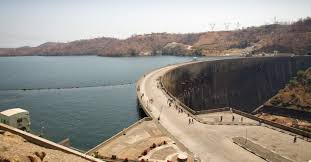Shipping industry pushes for government regulation
ZIMBABWE’S shipping industry has requested government to establish a regulatory board as part of measures to bring professionalism in the multi-million-dollar sector.
Shipping and Forwarding Agents Association of Zimbabwe (Sfaaz) chief executive Joseph Musariri told NewsDay Business that the current regulation by the Zimbabwe Revenue Authority (Zimra) was not enough.
“Such a regulation is not yet in place in spite of our plea to the government to put in place a body that regulates our industry,” Musariri said.
“At the moment, the industry is not regulated except for some efforts that Zimra has made to license customs clearing agents annually.
“This proposal is currently being dealt with by the Ministry of Transport and Infrastructural Development. This is our parent ministry. Professionalism is there in the industry but there is a big room for improvement. A lot of unprofessional conduct is also happening due to lack of regulation.”
Founded around 1955, Sfaaz is a voluntary association of shipping lines, freight forwarders, customs clearing agents, bonded warehouse operators and in-house clearing importers and exporters.
Musariri said volumes were lower than normal and this “results in charging sub-economic rates by some players.”
He said challenges being faced by the sector included frequent changes in import permit or licence requirements, along with customs clearing delays.
The sector is also enduring exorbitant customs fines.
According to Sfaaz’s proposed statutory regulation, the main objectives of regulating the industry would be to develop an environment where freight forwarders are obliged to conduct themselves professionally and ethically, and act as customs agents on behalf of Zimra.
Sfaaz, whose membership is 150, said the clearing and forwarding sector in Zimbabwe was replete with opportunistic practitioners.
Their unethical practices had exposed the government and the public to considerable risk.
“The business of forwarding consists of organising the transportation of goods by land, sea, air or intermodal, between places of origin and their places of destination.
“It further includes the preparation of documentation for the purpose of customs clearance. The forwarder must, therefore, understand the intricacies of customs clearance, the controls, and the documentary procedures which are essential to it.”
“Large amounts of money and high value goods are handled by the forwarders in the process, with virtually no collateral or any form of integrity guarantee other than trust of the client.
“This is much the same as trust funds which are handled by lawyers. Customs clearing agents have also suffered Zimra penalties and other losses due to inadequate technical knowledge on the part of their staff.
“This calls for the formation of a statutory body to oversee and regulate the activities of the clearing and forwarding industry, along similar lines as the legal, accounting and pharmaceutical professions. There is also an urgent need to build capacity in industry,” Sfaaz said.-newsday











